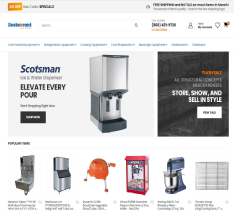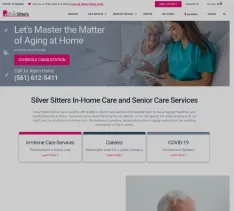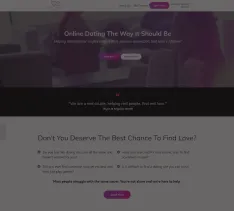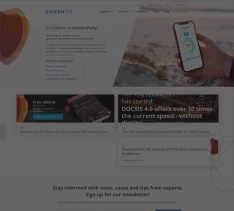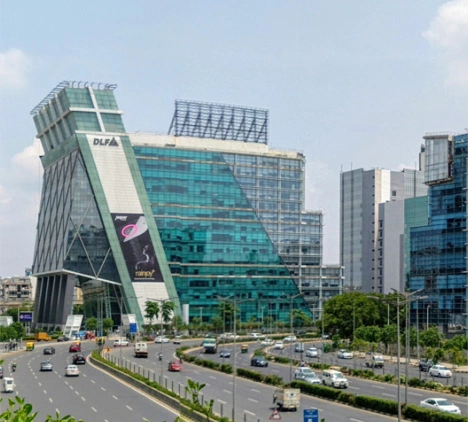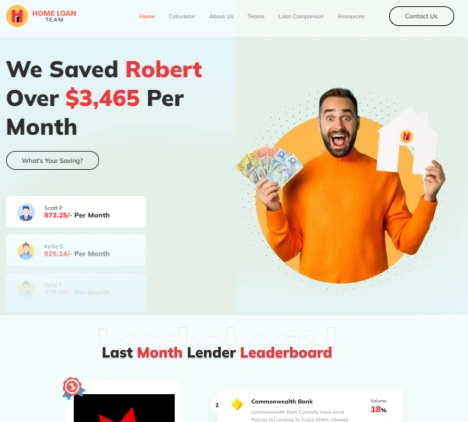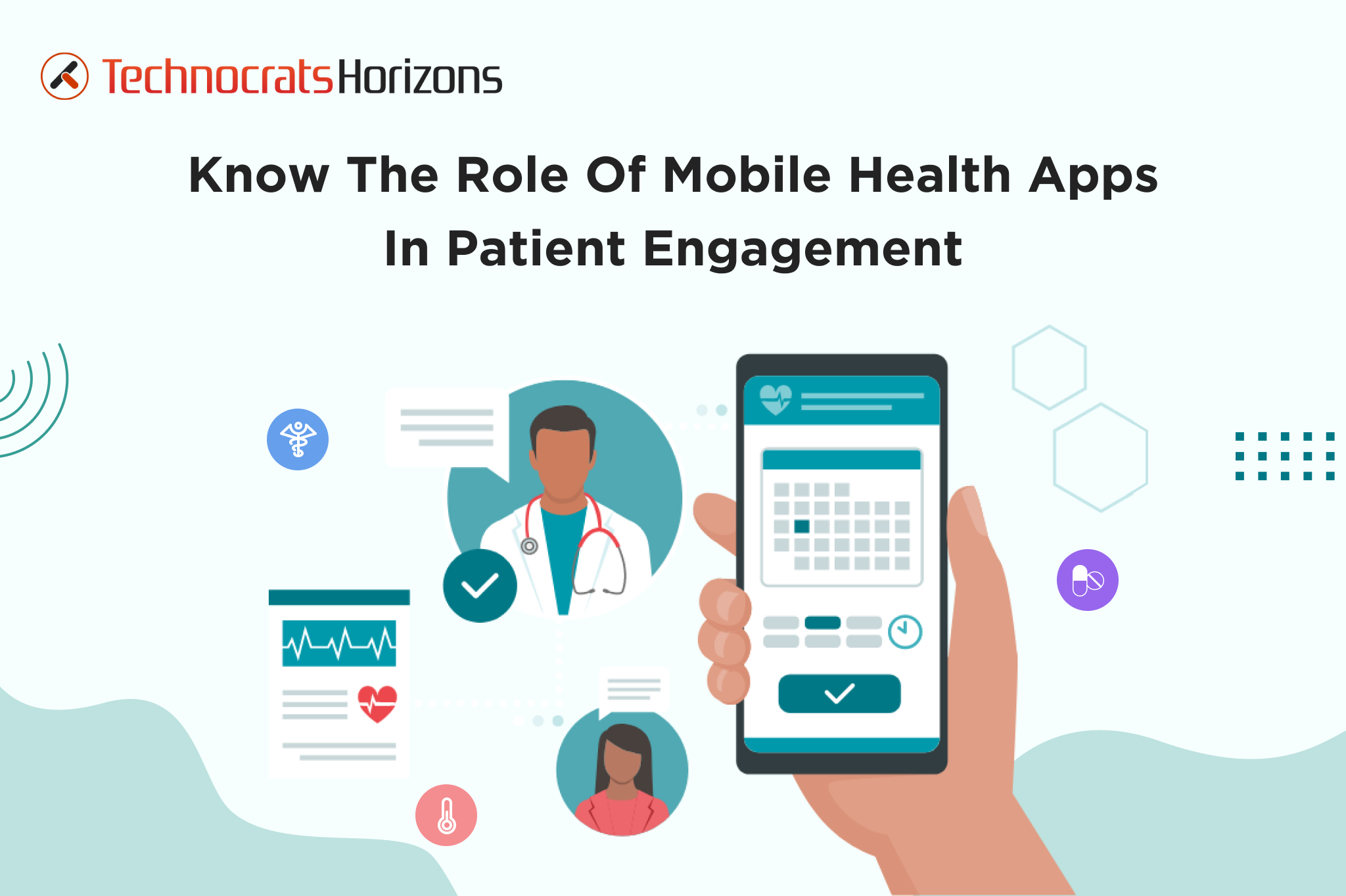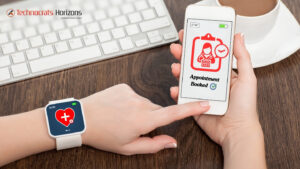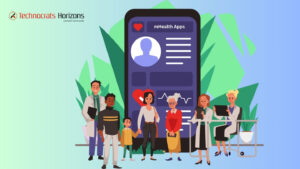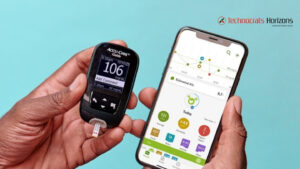Patient engagement in healthcare activities contributes 50% to the positive outcome. However, healthcare organizations always face issues in terms of patient engagement, and that’s the reason healthcare organizations struggle to deliver maximum health outcomes.
With the technological advancements, the healthcare industry has numerous solutions that can help them drive patient engagement. Mobile health apps are one of many technological solutions.
However, in this digital era, numerous healthcare organizations are unaware of mobile apps’ multiple benefits and crucial role in the healthcare industry.
The result is that 70% of healthcare organizations, especially startups, always face challenges in engaging patients.
That’s why we have brought this blog today to let you know the role of mobile health apps in patient engagement.
What are Mobile Health (mHealth) Apps in Healthcare?
Mobile health or mHealth apps are mobile applications specifically designed to make healthcare services like appointment scheduling and consultations easily accessible for patients.
Besides, mHealth applications also prove to be beneficial for healthcare providers as they allow healthcare professionals to deliver personalized care and treatment to individual patients. Before the pandemic, appointment scheduling used to happen via mobile devices or in-person visits. This made the patients wait for hours in queues to have a consultation with the healthcare professionals.
Moreover, patients living in rural or underserved areas face numerous challenges when travelling frequently to consult with expert healthcare professionals. During a pandemic, the in-person having in-person healthcare checkups and consultations became difficult due to the need for social distancing. However, patients needed constant support from healthcare professionals during that time.
This was when mobile health applications were launched, which made it possible for patients and healthcare professionals to have in-person communication. Although mobile health apps existed even before the pandemic, they became trendy during the pandemic. Now, mHealth applications have become an integral part of people’s daily healthcare activities. As per the study by Statista, today, we have around 105,000 mobile health apps on Google and Apple app stores. The reason behind the rapid emergence of mHealth apps is the way they are simplifying the healthcare processes.
The Role of mHealth Applications in Enhancing Patient Engagement
Patient engagement is involving patients in making decisions related to their healthcare. Often, people think of patient engagement as examining the patients and prescribing them necessary treatment and medications.
However, patient engagement goes beyond that. A patient basically depends on the healthcare provider’s skills and expertise to get the necessary treatment. However, such therapies only have 50% success. Any treatment becomes utterly successful with the joint efforts of both the patient and the healthcare expert.
To make patients actively participate in their treatments and medications, healthcare experts need to make continuous efforts. One way of enhancing patient engagement is leveraging technological advancements in which a mHealth application plays a prominent role. Let’s see in detail how health applications help in improving patient engagement.
Effective Healthcare Management
A few decades back, the process of patient care and treatment used to be one-sided, where healthcare professionals would monitor patients, prescribe them the necessary treatment, and patients would work accordingly. However, this process became effective for patients with fundamental healthcare problems like fever. For patients dealing with chronic diseases like diabetes and high blood pressure, this process did not become effective as such diseases needed efforts from patients to be involved in their treatment plan. Moreover, it was also necessary for patients to track their treatment progress. They could, of course, consult with their respective healthcare professionals to know their treatment progress, but it required them to make in-person healthcare appointments, which used to be time-consuming. In such situations, the mHealth application proved to be a boon to the patients as it allowed them to track their treatment progress effectively with the help of electronic records. Moreover, it also allowed patients to access their medical data anytime it was necessary at their convenience. So, mobile health apps become an effective means to make patients track their progress and medical data easily without any need to have in-person doctor visits.
Personalized Healthcare Assistance
Every patient needs a different treatment plan based on their medical condition. For instance, a patient dealing with a minor heart problem will require different care and treatment compared to one suffering from significant heart issues. However, it becomes a bit challenging for healthcare experts to deliver personalized treatment plans to individual patients as they need to perform detailed analyses of personal health and preferences, which becomes time-consuming and error-prone. And generalized healthcare solutions fail to drive effective patient engagement. mHealth applications allow healthcare experts to deliver personalized treatment plans with the help of AI-based analytics tools. Healthcare experts can analyze individual patients’ medical history and health records, which allows them to recommend customized treatment plans to patients. With customized treatment plans, healthcare professionals can make patients actively engage in curing the disease.
Real-Time Patient Health Monitoring
Chronic diseases like high blood pressure need healthcare experts to monitor the patient’s health constantly. However, healthcare experts cannot remain with patients 24/7. mHealth applications can make it possible to happen with the help of real-time health monitoring devices like pulse rate and heart rate monitoring. The health monitoring devices connect patients and healthcare experts via mHealth apps that allow healthcare professionals to get real-time updates on patient’s health. Real-time health updates enable healthcare professionals to recommend immediate medication and treatment to patients, which can save them from severe health downfall. This also becomes an effective means to drive patient engagement as real-time updates allow them to be involved in their healthcare measures.
Enhanced Communication Between Patients and Healthcare Experts
Patient engagement is not merely about providing effective diagnosis and treatment. It is more than that. Effective communication also plays a crucial role in driving patient engagement. Sometimes, patients might need a health professional’s advice at midnight. In such situations, in-person visits could waste a lot of time. At that time, mobile health apps provide a perfect solution in the form of in-person chat applications and AI-powered virtual assistants. Chatbots and chat applications allow patients to communicate with their treatment plans and healthcare in just a few clicks. Moreover, instant responses through chat applications enable patients to engage with their healthcare activities effectively.
5 Amazing Features of Mobile Apps for Healthcare
As discussed, mobile health apps play a crucial role in enhancing patient engagement. And it’s merely because of the mesmerizing features of mobile health apps that are allowing them to drive patient engagement. Here are the five most impressive features of mobile health apps.
Electronic Health Records
mHealth applications allow patients to seamlessly access their medical data with the help of Electronic Health Records (EHR). Besides, EHR become an effective way for patients to track the progress of their treatments. These valuable insights allow patients to engage in their healthcare effectively.
Virtual Communication
Mobile health apps become an excellent medium for patients to connect virtually with healthcare providers through video calls and in-app chat applications. Moreover, the media-sharing option allows patients to share their reports with healthcare experts. The virtual communication feature will enable patients to connect with healthcare professionals without any need to travel.
Timely Medication Reminders
In today’s fast-paced world, taking self-care has become challenging for people due to busy schedules. People sometimes even forget to take medications on time due to their busy schedules. However, in severe health conditions, forgetting to take medicines could lead to critical outcomes. mHealth applications allow patients to take their medications on time by sending medication reminders. Patients just need to set the time of drugs in the app, and the application will remind them of the medication via push notification. This allows patients to take medicines on time without fail.
In-Person Chat Applications
Healthcare communications need to be precise. People often think of mHealth applications as ineffective in terms of communication. However, this is not the reality. mHealth apps integrate chat applications that allow a seamless virtual interaction between patients and healthcare experts. To enhance communication, the chat applications in mHealth apps enable patients to share their reports to get practical healthcare guidance and consultation from healthcare professionals. The ease of communication allows patients to engage in their healthcare consultation effectively.
Scheduling Appointments
One of the most hectic processes in the healthcare industry is scheduling appointments. Patients need to wait in long queues for hours to get a doctor’s appointment. This is the foremost reason why patients resist visiting healthcare centres even after suffering severe disease or pain. Mobile health apps simplify this hectic process through an online appointment scheduling feature. With mobile health apps, patients can easily schedule a doctor’s appointment in just a few clicks. The simplified scheduling system becomes a primary reason for patients to engage in healthcare activities.
Benefits of Mobile Health Apps in the Healthcare Industry
Ease of Accessibility
Healthcare businesses often face challenges in terms of patient engagement, and the primary reason for this is the difficulty in accessing healthcare services. Patients living in remote or underserved areas find it challenging to travel for hours to access specialized care and treatment. Mobile health apps become renowned solutions for such patients as they allow patients to access specialized healthcare services from the comfort of their space. Moreover, mobile health applications also benefit patients with disability by eliminating the need for them to travel. Additionally, mobile health applications have become an effective medium for healthcare businesses to provide global consultation services through their easy accessibility.
Cost-Efficiency and Time-Efficiency
Mobile health apps prove to be a cost-efficient way for both healthcare professionals and patients. Healthcare professionals can automate daily tasks like scheduling appointments and post-surgery follow-ups. Such automation allows healthcare professionals to optimize resources, thus saving them from spending unnecessary time and money on recruiting unwanted resources. Moreover, mHealth applications also provide cost and time benefits to patients. Patients can leverage specialized care and treatment from the comfort of their space without any need for travelling or wasting hours in long queues for appointments. This measure prevents patients from spending unnecessarily in terms of travelling.
Enhancing Patient Care and Outcomes
Patients always neglect to take care of their health, and one of the primary reasons for this is the time taken to visit healthcare centres. This is the reason why patients do not engage much in healthcare activities. Mobile health applications allow patients to involve themselves in healthcare activities through remote monitoring systems and medication reminders. With mobile health apps, healthcare professionals get to see enhanced patient outcomes in terms of their healthcare due to their enhanced engagement.
Use Cases of Mobile Health Apps in the Healthcare Industry
Headspace
For individuals dealing with mental health issues like depression and anxiety, Headspace has become a renowned mobile health application for mental peace. The app provides numerous mental health solutions to varied mental health problems. The patient can log into the application and find tailored solutions to their specific needs. For instance, a patient dealing with depression can leverage the meditation feature of the app that recommends meditation exercises by analyzing the patient’s medical history and depression level. Moreover, the app allows the patients to track their progress through real-time monitoring and updates.
MySugr
Diabetes is one of the most severe diseases that needs utmost care and regular monitoring. Keeping this in mind, the application MySugr was launched. This application allows diabetic patients to constantly monitor their glucose levels to ensure their diabetes always stays in control. Moreover, the application regularly performs detailed analyses of patients’ health and makes personalized recommendations related to dietary plans and medications. With its customized recommendations and regular health monitoring, MySugr has been able to drive maximum patient engagement.
Conclusion
As seen, mobile apps in healthcare play a crucial role in driving patient engagement. Mobile health apps help healthcare experts enhance patient experience with Telemedicine, virtual communication, and real-time patient monitoring that help patients engage in their healthcare activities effectively.
Besides, mobile health apps provide numerous benefits to the healthcare industry. From easy accessibility to enhancing patient care to cost and time efficiency, mHealth apps cover every possible aspect of the healthcare industry.
Is your healthcare organization facing challenges in terms of getting patient engagement? Technocrats Horizons, the healthcare app development company, can help you refine your healthcare services with advanced technologies.
Contact us now to explore our mobile health applications.
Revolutionize Healthcare with Tailored Digital Solutions!
Get in touch to build custom and secure solutions to optimize patient care and experience.


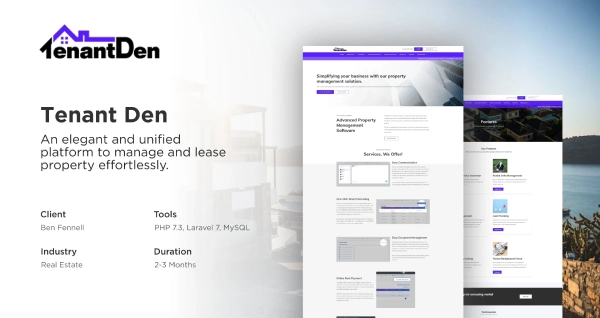
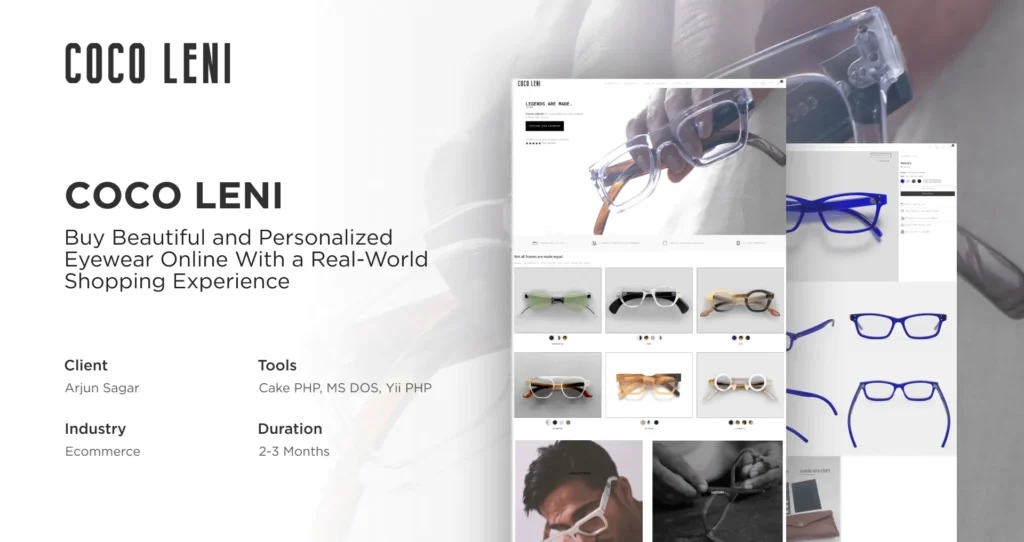
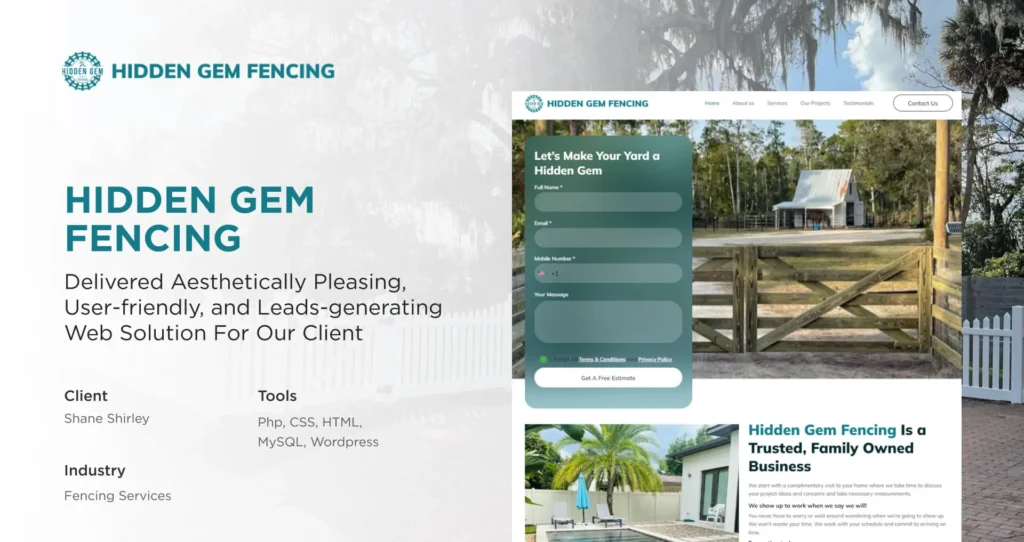
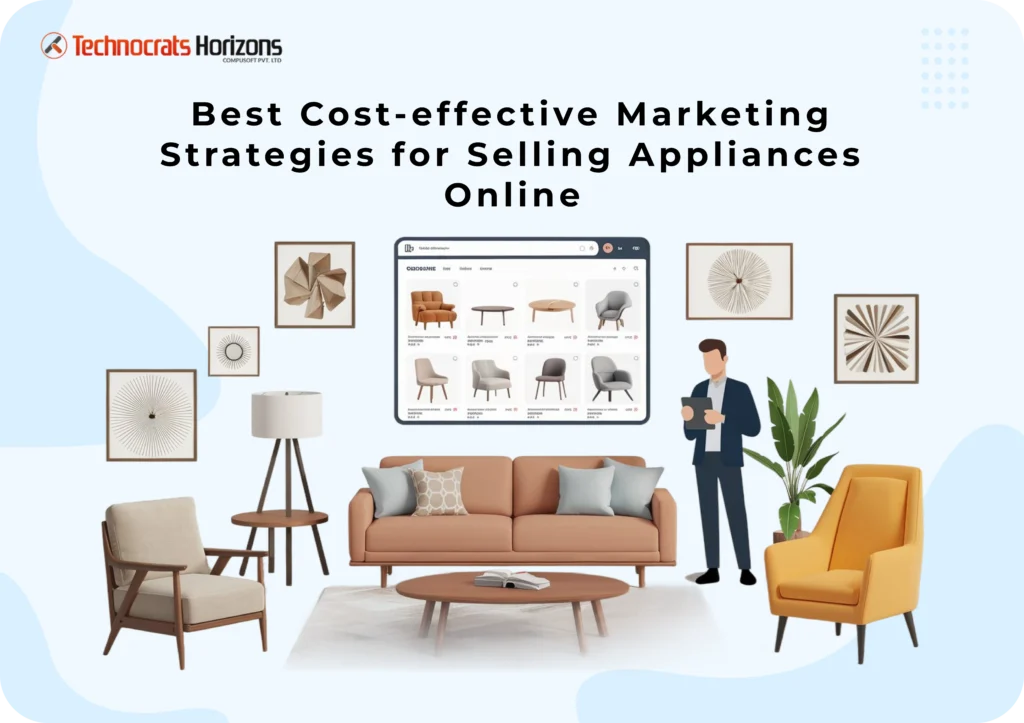


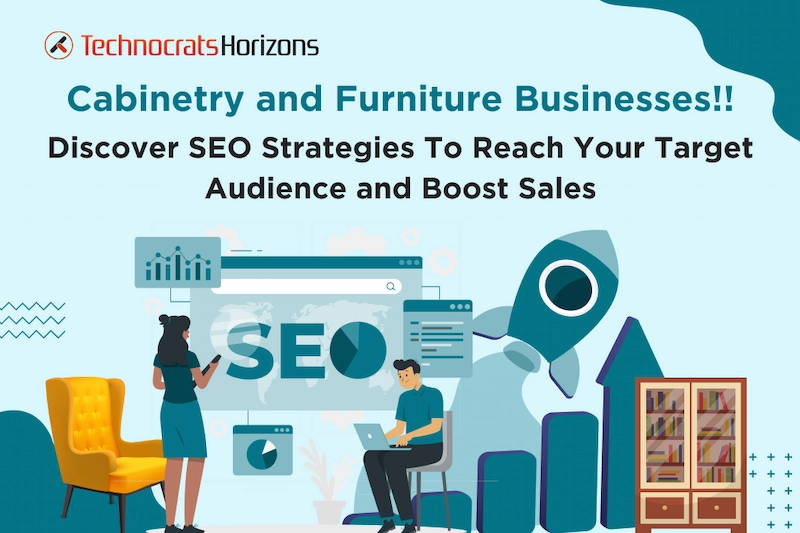
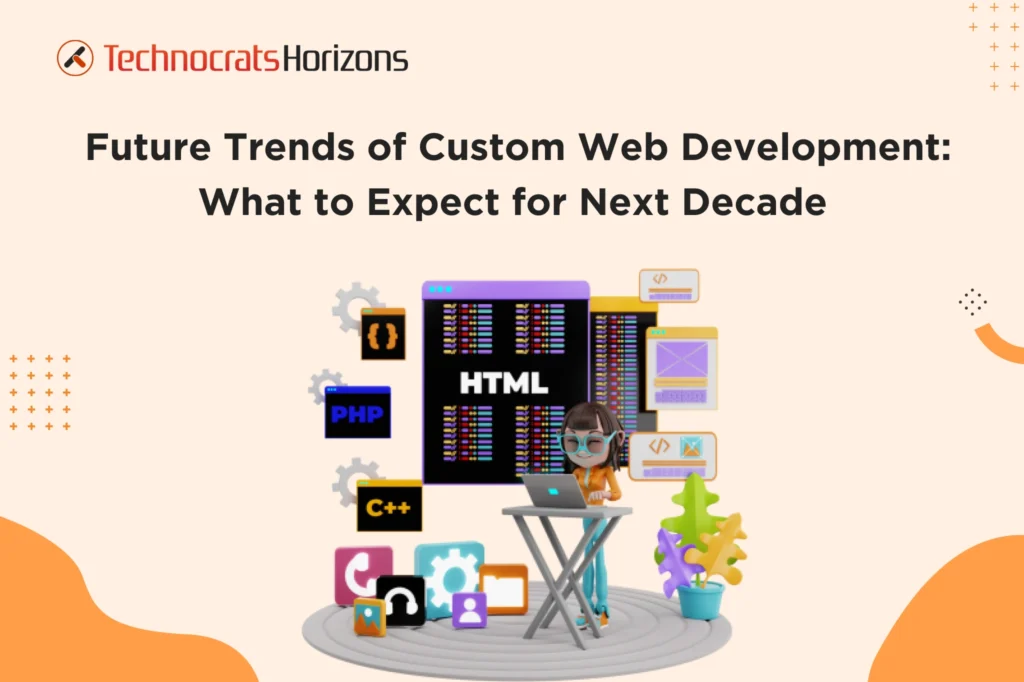
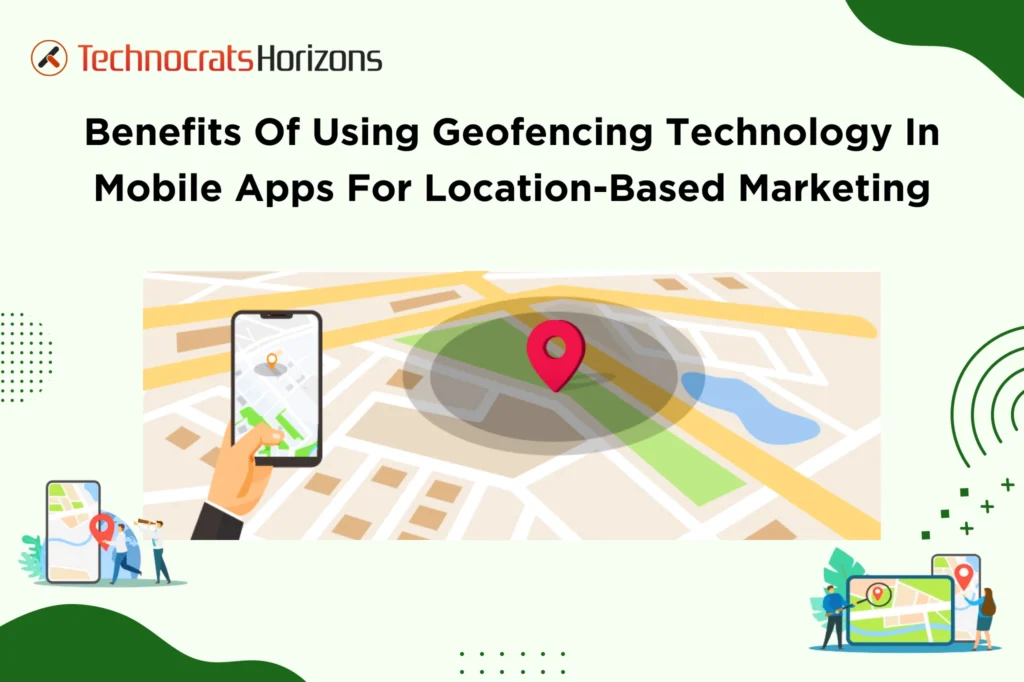
 Request a
Request a












